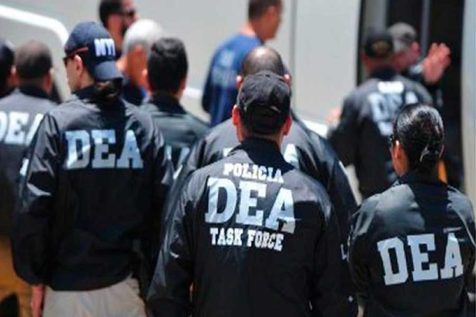The special unit worked closely with the US’ DEA for several decades, but President Obrador’s less confrontational policy led to its dissolution.
The Mexican government has decided to disband their anti-narcotics unit that worked hand-in-hand with the US Drug Enforcement Administration (DEA) to tackle organised crime for a quarter of a century.
The elite group of about 50 officers, called the Sensitive Investigative Units (SIU), operated in about 15 Latin American countries to combat notorious drug lords and their smuggling rings.
The DEA had been training the Mexican special anti-narcotic officers since the mid-1990s.
The elite unit carried out several successful operations against narcotics. Its most trumpeted operation was the 2016 capture of Joaquin “El Chapo” Guzman, then the boss of the powerful Sinaloa cartel.
According to Reuters, which quoted two sources from the DEA, the disbanding of the group is also a major blow to bilateral security cooperation.
Mexico is one of the epicentres of the multi-billion dollar global narcotics trade.
According to Reuters, President Andres Manuel Lopez Obrador’s government formally notified the DEA in April 2021 that the unit had been shut down.
A second source familiar with the situation confirmed the closure of the unit.
Mexico’s Public Security Ministry did not respond to repeated requests for comment. The DEA has declined to comment, and the closure of the unit was not publicly reported before.
The elite unit’s closure is the latest example of the breakdown in cooperation between the DEA and Mexico since Lopez Obrador assumed power in 2018 and vowed to overhaul the country’s security policy.
Angered by the soaring bloodshed he blamed on the heavy-handed tactics of his predecessors, Lopez Obrador sought to implement a less confrontational policing style and pledged to tackle what he claims are the root causes of the violence, such as poverty, instead of hunting down cartel chiefs.
Reversing decades of police gains
The elite team was established in 1997 as the main conduit for the DEA to share leads on drug shipments and tips obtained on US soil with Mexico’s government.
The DEA trained elite Mexican officers on the latest surveillance and policing techniques and vetted them, including with polygraph tests.
“It shatters the bridges we spent decades putting together,” said a DEA agent who spoke to Reuters anonymously.
For Mike Vigil, the DEA’s former chief of international operations, the SIU closure and Lopez Obrador curbing security cooperation will hurt both countries.
“It will mean more drugs going to the United States and more violence in Mexico,” he told Reuters.
The Mexican government’s decision is expected to fuel problems on US streets, where authorities are battling to reduce a surge in overdoses that last year led to more than 100,000 deaths, mostly linked to a new wave of synthetic drugs produced by Mexican cartels.
Vigil said closing an elite unit that goes after organised crime groups responsible for most of the murders doesn’t make sense.
“Mexico is shooting itself in the foot,” he added.
Mexico is infamous for having organised crime groups, mostly relying on the drug trade.
The Latin American country has been trapped in a spiral of cartel-related bloodshed since 2006, when the government launched a controversial anti-drug operation with federal troops.
According to official figures, the violence has since claimed more than 340,000 lives, most of them lost to organised crime.
In 2021, 33,315 people were murdered across Mexico. (https://www.trtworld.com/magazine/mexico-s-closure-of-elite-unit-deals-a-blow-to-the-us-fight-against-narcos-56519)



































